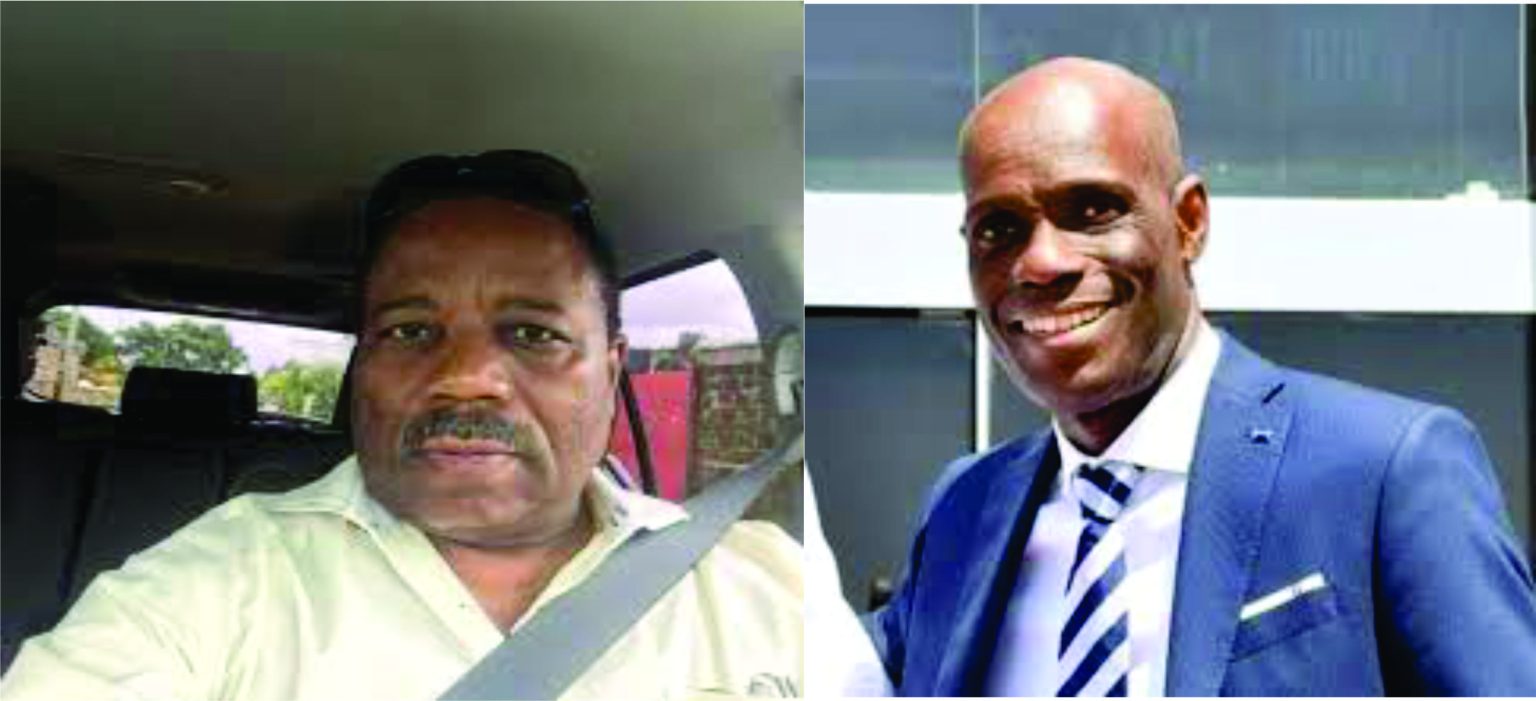The political landscape in Monrovia, Liberia, is embroiled in a tense standoff between Mr. Sam Gaye, Director of the Executive Protection Service (EPS), and Mr. Lenn Eugene Nagbe, Chief of Staff to former President George Weah. The contention stems from accusations leveled by Mr. Nagbe against Director Gaye during a radio interview on OK FM. These accusations, which Director Gaye vehemently denies, have sparked a legal battle and fueled public speculation about the relationship between the former president’s office and the EPS.
The core of the dispute revolves around Mr. Nagbe’s allegation that Director Gaye possesses a photograph in his bedroom depicting “a gun at former President Weah.” This claim, considered defamatory by Director Gaye’s legal team, has prompted a formal demand for a public retraction. Represented by former Associate Justice Cllr. Kabineh M. Ja’neh, Director Gaye has given Mr. Nagbe a 48-hour ultimatum to retract his statements, citing the irreparable damage caused to his reputation both nationally and internationally. The demand letter emphasizes the seriousness of the accusations and the need for swift action to mitigate the alleged harm.
Mr. Nagbe’s accusations extended beyond the photograph incident. He characterized Director Gaye as an unprofessional and incompetent leader, prone to making decisions based on hearsay rather than substantiated facts. He further labeled the EPS Director a “you say, I say Director,” implying a lack of decisive leadership and an inability to effectively manage the EPS. These broader accusations contribute to a complex portrait of strained relations between the two figures and potentially reflect deeper tensions within the political sphere.
The 48-hour ultimatum issued by Director Gaye’s legal team has created a sense of anticipation and uncertainty. Mr. Nagbe has acknowledged receipt of the letter and indicated his intention to consult with his legal counsel before responding. This suggests that the matter is likely to escalate into a full-blown legal confrontation unless a resolution is reached through retraction or other forms of reconciliation. The public awaits Mr. Nagbe’s response, which will undoubtedly shape the trajectory of this escalating dispute.
Director Gaye’s denial of the allegations and his demand for a retraction signal a firm stance against what he perceives as a smear campaign. The involvement of a prominent legal figure like former Associate Justice Ja’neh underscores the seriousness with which Director Gaye views this matter. The legal action serves not only as a defense of his reputation but also as a challenge to Mr. Nagbe to substantiate his claims. The potential legal battle could unearth further details about the alleged animosity between the two parties and shed light on the inner workings of the EPS and its relationship with the former president’s office.
This escalating conflict illuminates the complexities and potential tensions within the political landscape of Liberia. The public exchange of accusations and the subsequent legal maneuvering highlight the fragility of relationships between key figures and the potential for disputes to quickly escalate into public confrontations. The outcome of this standoff will likely have implications beyond the individuals involved, potentially influencing public perception of the EPS and the legacy of the former president’s administration. The 48-hour deadline serves as a crucial turning point, with the potential to either defuse the situation or ignite a more protracted legal battle.














